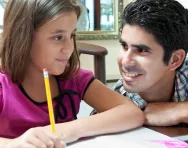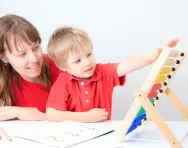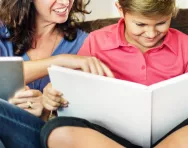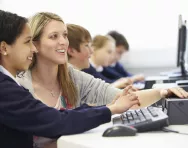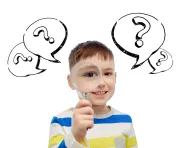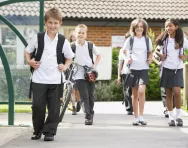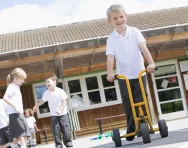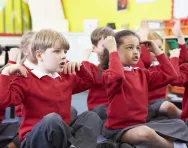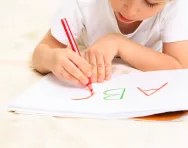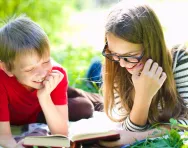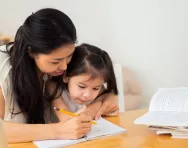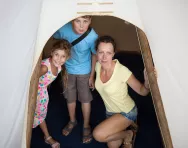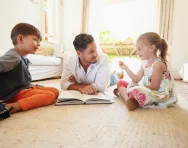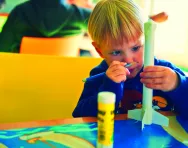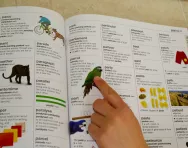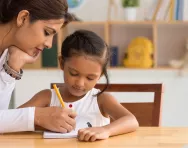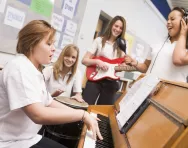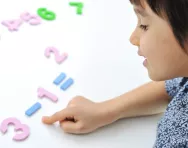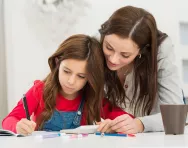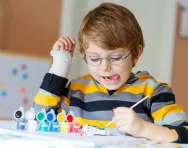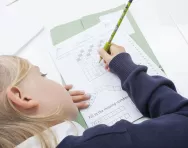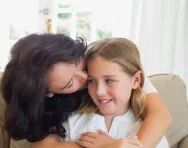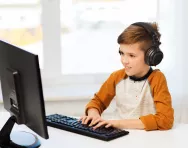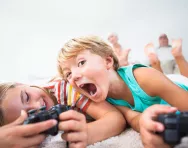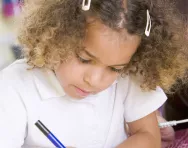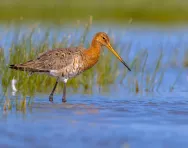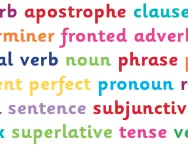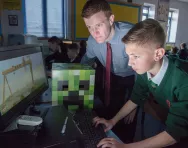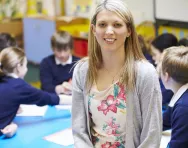Eyfs articles
Home educating a child with special educational needs
If school life isn't suiting your child with SEN, home educating could be a viable prospect – but is it right for you?
Are you cut out to home educate?
So you're thinking about home educating your child but aren't sure whether you're up to the job. We address some of the most common concerns to help you decide on the best course of action for you and for your child.
How to boost your confidence with home education
Being solely responsible for your child's education can feel like a heavy burden at times. We have tips for putting yourself back in the home-educating driving seat.
How to track your home-educated child's progress
One of the principles of home education is that a child can learn at their own rate, but how you do make sure they're actually making progress?
What is growth mindset?
It’s a huge trend in education in the US, and now it’s becoming a big deal here. We take a look at what growth mindset means for your child.
What is an Education Welfare Officer?
If there are concerns about your child’s school attendance, you might be referred to an Education Welfare Officer. We explain their role.
6 ways to make science fun for kids
Science may be one of the most hands-on subjects at school, but making it accessible isn’t always easy. We asked the experts how to channel your child's natural curiosity into a life-long interest in the world around us and how it works.
Talking to your child about politics
Every child is a future voter, so it's important that they learn about politics. Lucy Dimbylow takes a look at where to begin.
How to build your child's independence
Do you feel like you’re constantly nagging your child to get things done? Helping them develop their independent streak could help to break the trap.
'Help! My child hasn't been offered a school place!'
Every year, a number of parents face the nightmare of not being offered a Reception place for their child in any local school. We explain what to do if the worst happens.
Best learning songs
Could songs and music help your child learn and remember English, maths and science facts? We pick our favourite learning songs, covering everything from adverbs and angles to onomatopoeia and photosynthesis.
The legalities of home education in the UK
Here’s our plain-English guide to the law surrounding home education in the UK – it’s not as complicated as you might think!
Getting started with home education: your step-by-step guide
Beginning to home educate your child is a big leap into the unknown, so how do you actually get the ball rolling? We explain how the process works in the UK.
Home education: your FAQs answered
Thinking about home educating your child in the UK? We tackle some of the burning questions.
How to write an educational philosophy
An educational philosophy can focus your home-educated child's learning and satisfy the local authority. We explain how to put it together.
Improving your child’s listening skills
Listening is a vital skill for your primary-school child, but how can you help to develop it?
Butlin’s Astonishing Family Science Weekend reviewed by parents
Butlin’s new Astonishing Family Science Weekends are designed to give children aged six to 14 a taste of how science works in everyday life. Lucy Dimbylow visited the Bognor Regis resort with her children Tom, 10, and Katie, 5.
Best reference books for children
Reference books and dictionaries offer us information that's accurate, well researched and beautifully presented and are invaluable when you're working on a homework project. From atlases to dictionaries and encyclopedias, we recommend some of the best English, maths, science, history and geography reference books for primary-school children.
What is flexi-schooling?
Tempted by the idea of home educating but not sure you could do it full-time? Flexi-schooling could be the perfect compromise, writes Elisabeth Attwood.
Single-sex schools: the pros and cons
Would you consider a girls' school or boys' school for your child at primary or secondary level? We take a look at single-sex education and whether it’s right for your child.
The laws on home education in Wales
As home education surges in popularity in Wales, we explain the facts you need to know if you're considering home-educating your child.
Home education laws in Scotland
Are you a parent in Scotland considering home-educating your child? We explain the legal process you'll need to follow.
Home education and the law in Northern Ireland
In recent years there has been controversy around the right to home educate in Northern Ireland. We explain what the law says.
Home education in England: the facts
What does the English law say about your right to home educate your child? We explain the legalities and practicalities of getting started with home education in England.
How to help your child with anxiety
Anxiety is on the rise amongst primary school children, but, with the right support, they can overcome it.
Positive screen time for children
Despairing of how much time your child spends glued to their laptop, tablet or phone? Here's how to help them get the most out of their screen time
Museums reviewed by parents: Dickens Museum
A brilliant way to make KS2 learning about life in Victorian times come to life for your primary-school child, the London home where Charles Dickens lived for two years is no Bleak House, rather an Old Curiosity Shop of memorabilia that all the family will love.
33 things that always happen on after-school playdates
They're meant to be fun, but they can be anything but – especially if you're the host parent!
Learning about plants in primary school
From the parts of a plant to the seed cycle, water transportation and photosynthesis, children learn lots about the living things around us in primary school. Find out what is taught when in the primary classroom in our parents' guide.
Moving from Reception to Year 1: how it affects your child
As the transition from the Foundation Stage to Key Stage 1 approaches, how can you help your child adjust to the new pace of Year 1?
Learning about animals in primary school
Carnivores, herbivores and omnivores; vertebrates and invertebrates. Your child will learn about animals and their classification in primary school. We explain what they will find out about amphibians, birds, fish, mammals and reptiles.
Primary grammar glossary for parents
Do you know the difference between the subject and the subjunctive? Can you identify a relative clause or find a phrase? From active voice to verb tense, TheSchoolRun's primary-school grammar glossary offers a complete guide to all the grammatical concepts children are taught in EYFS, KS1 and KS2 English. As well as basic definitions we offer more detailed explanations, teachers' tips and examples for each grammar term.
What is a Steiner school?
Steiner schools place an emphasis on preserving childhood, music and arts with an internationally recognised curriculum, but what actually takes place in the classroom?
The best science days out for families
Looking for a great day out that's educational, too? Inspire your budding scientist with a trip to one of these brilliant, hands-on UK science centres.
Learning through Minecraft
You may think it’s just another video game – albeit a particularly addictive one – but Minecraft could have educational benefits too…
Museums reviewed by parents: KidZania
What does your child want to be when they grow up? London's new family attraction, KidZania, lets them try out prospective careers in a child-centred world.
How to help out at your child's school
Helping out at your child’s school is a great way to find out what they’re getting up to. We explain how to get your foot in the door.
Early years writing
From learning to hold a pencil to getting their thoughts down on paper, learning to write is a tricky milestone for children. We explain how it happens, and how you can help.
What are seasons?
Savour the seasons with your primary-school child by reinforcing what they learn about autumn, winter, summer and spring in KS1 with at-home activities.
What are food chains and food webs?
A food chain is a diagram that shows us how animals are linked by what they eat; in food webs we represent the links between animals who eat or are eaten by more than one kind of animal. We explain how children learn about food chains in the primary-school classroom in our guide for parents.
